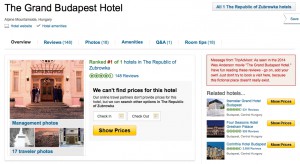Most reviews are mildly helpful. The problem is that if something is reviewed and it has less than 3/5 it’s interpreted as being bad. Like not even worthy of attention. And as we all know reviewers are biased. Or incompetent. Or they just look at stuff that isn’t important. I don’t mean individual reviewers. I am a reviewer on some sites. I mean as a collective. A… Wait! what is the collective noun for reviewer?? probably something boring… Anyway an embarrassment of reviewers are usually generally bad. Taken together we all hate different aspects of the same thing, making it less helpful for the reader to decide what it all means.
But there is one type of review that is fantastic and that is the snarky, hilarious review. Take for example this review for Veet for Men Hair Removal Gel Creme by A. Chappell:
Initially all went well and I applied the gel and stood waiting for something to happen. I didn’t have long to wait. At first there was a gentle warmth which in a matter of seconds was replaced by an intense burning and a feeling I can only describe as like being given a barbed wire wedgie by two people intent on hitting the ceiling with my head.
And the review just gets funnier and funnier.
Or what about this review for Haribo Gummi Candy Gold-Bears, 5-Pound Bag by Douglas Pope:
The animal noises broadcasting from my pelvis were an ominous warning of the violent acts that were to follow. I shouldered my way into the bathroom, clawing at my belt, moaning with pain. The smell came first. It started sweet, almost tangy. That was quickly overpowered by a cloying chemical perfume.
Much of my enjoyment was due to the kind attention of M. Gustave, the heavily perfumed concierge. I was amazed that he seemed to be there ALL THE TIME, always ready and delighted to help me! Case in point: On the plane ride over from the States I somehow lost my front row isle seat to the opera ‘Toscana’. When I mentioned this to M. Gustave, he told me that he’d be able to get me another ticket with just one day’s notice. And he did. Incredible. That in and of itself was worth a million klubecks to me.
